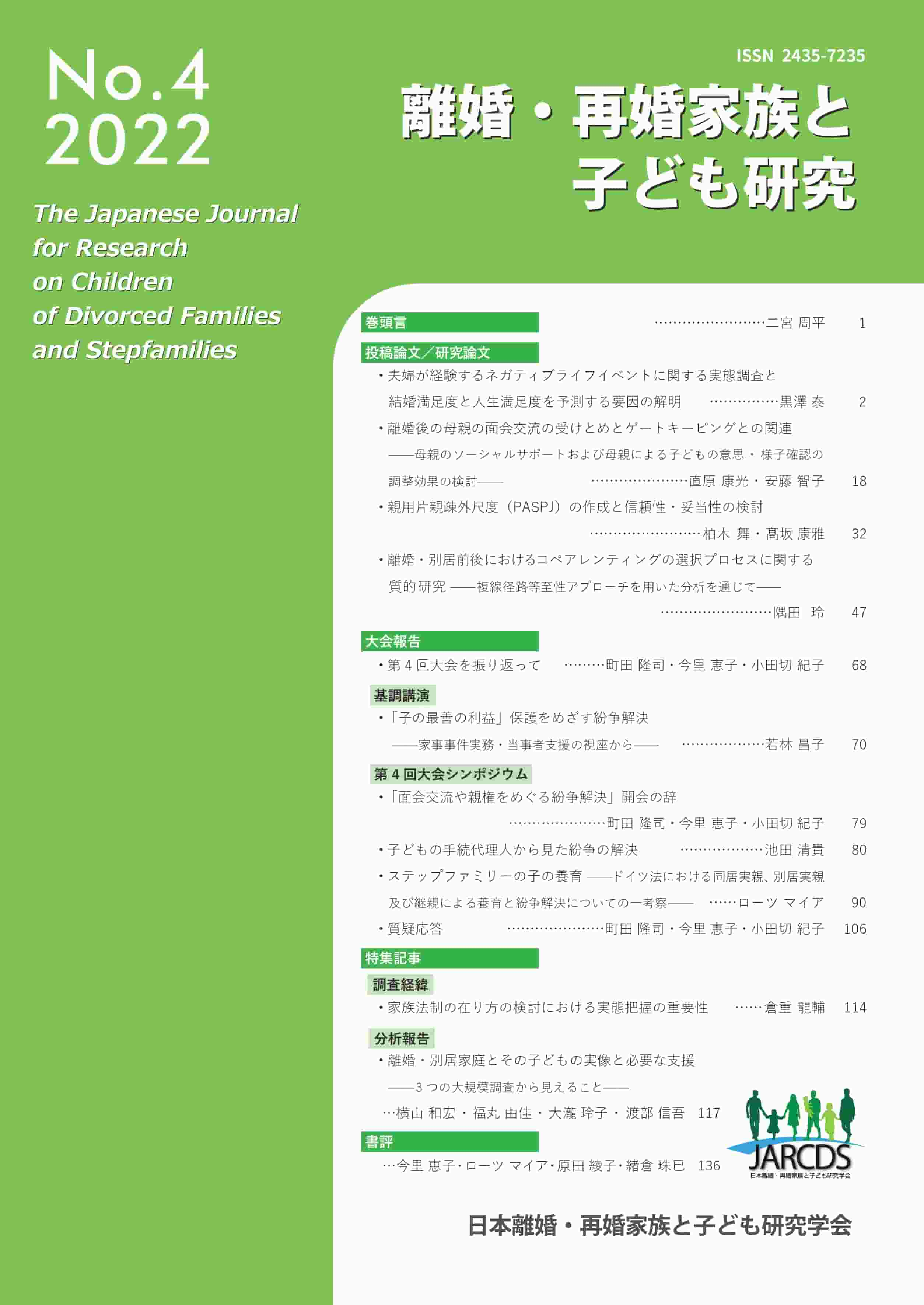Volume 4
Displaying 1-17 of 17 articles from this issue
- |<
- <
- 1
- >
- >|
Preface
-
2022 Volume 4 Pages 1
Published: 2022
Released on J-STAGE: September 01, 2023
Download PDF (120K)
Articles
-
2022 Volume 4 Pages 2-17
Published: 2022
Released on J-STAGE: September 01, 2023
Download PDF (736K) -
2022 Volume 4 Pages 18-31
Published: 2022
Released on J-STAGE: September 01, 2023
Download PDF (811K) -
2022 Volume 4 Pages 32-46
Published: 2022
Released on J-STAGE: September 01, 2023
Download PDF (736K) -
2022 Volume 4 Pages 47-67
Published: 2022
Released on J-STAGE: September 01, 2023
Download PDF (1212K)
Reviewing the Annual Conference 2021
-
2022 Volume 4 Pages 68-69
Published: 2022
Released on J-STAGE: September 01, 2023
Download PDF (180K)
Keynote Speech
-
2022 Volume 4 Pages 70-78
Published: 2022
Released on J-STAGE: September 01, 2023
Download PDF (370K)
Symposium
-
2022 Volume 4 Pages 79
Published: 2022
Released on J-STAGE: September 01, 2023
Download PDF (94K) -
2022 Volume 4 Pages 80-89
Published: 2022
Released on J-STAGE: September 01, 2023
Download PDF (403K) -
2022 Volume 4 Pages 90-105
Published: 2022
Released on J-STAGE: September 01, 2023
Download PDF (656K) -
2022 Volume 4 Pages 106-113
Published: 2022
Released on J-STAGE: September 01, 2023
Download PDF (289K)
Special Feature
Introduction
-
2022 Volume 4 Pages 114-116
Published: 2022
Released on J-STAGE: September 01, 2023
Download PDF (165K)
Survey Research Review
-
2022 Volume 4 Pages 117-135
Published: 2022
Released on J-STAGE: September 01, 2023
Download PDF (703K)
Book Reviews
-
2022 Volume 4 Pages 136-138
Published: 2022
Released on J-STAGE: September 01, 2023
Download PDF (245K) -
2022 Volume 4 Pages 139-142
Published: 2022
Released on J-STAGE: September 01, 2023
Download PDF (226K) -
2022 Volume 4 Pages 143-145
Published: 2022
Released on J-STAGE: September 01, 2023
Download PDF (204K)
-
2022 Volume 4 Pages 146-147
Published: 2022
Released on J-STAGE: September 01, 2023
Download PDF (189K)
- |<
- <
- 1
- >
- >|
